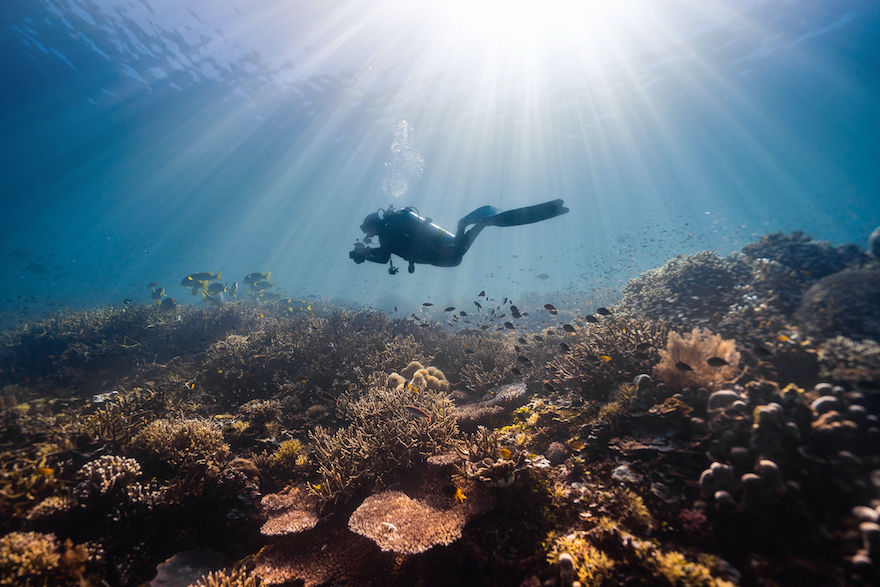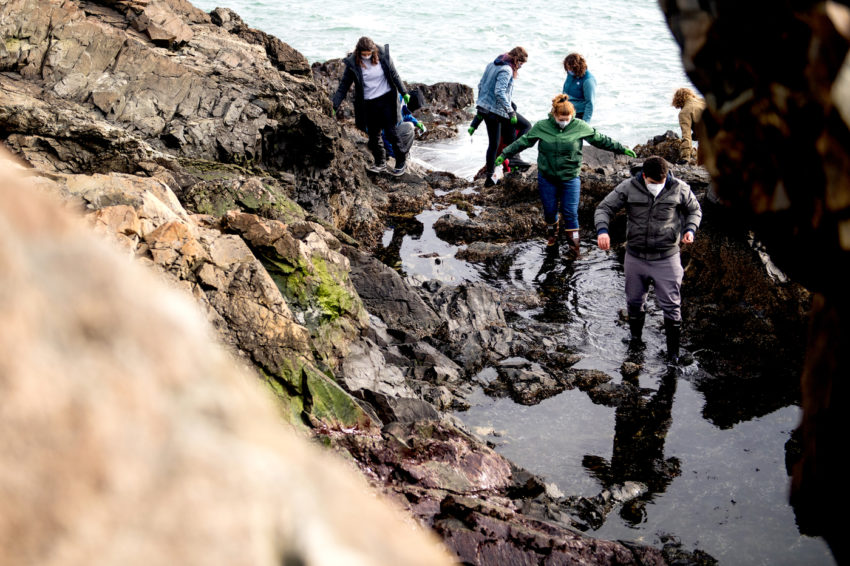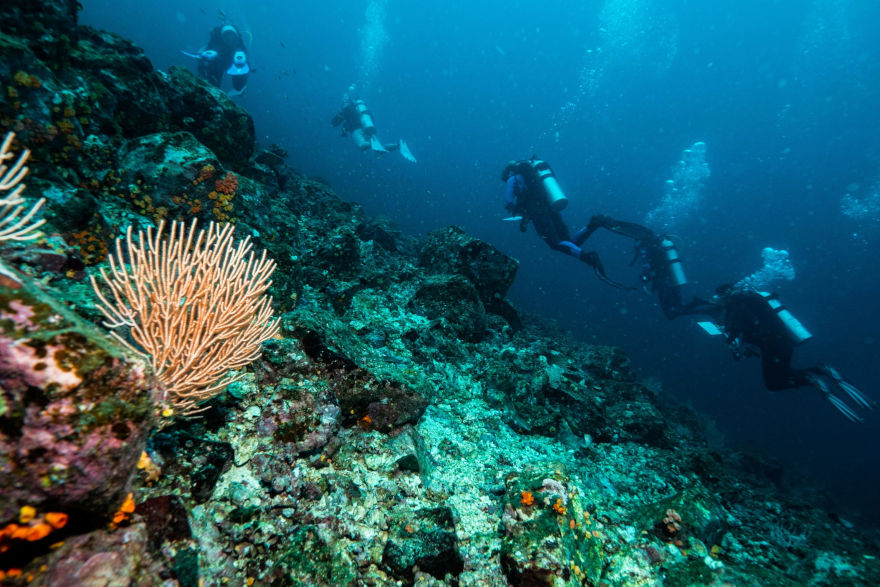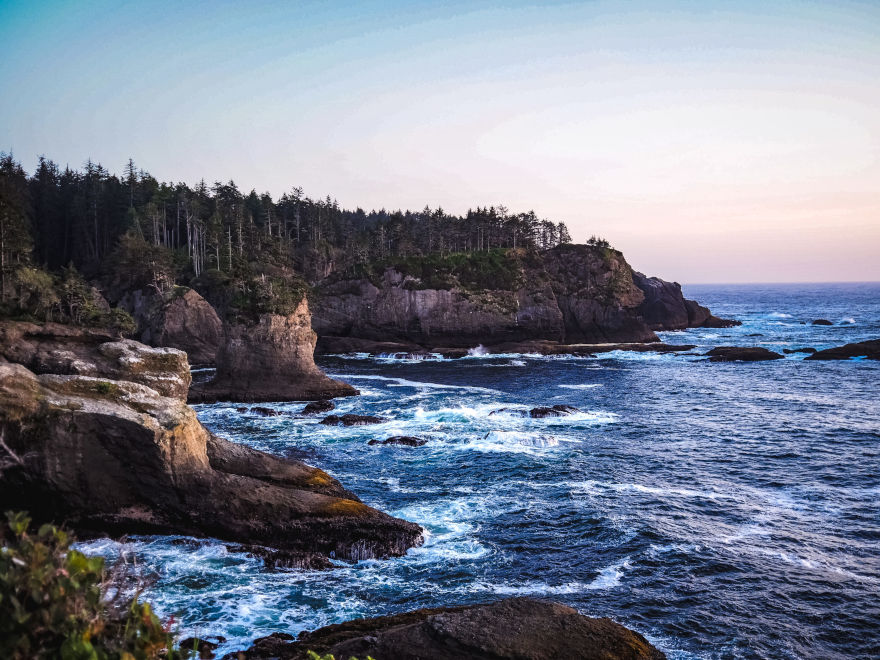
Have you always loved the water? Are you interested in marine biology? If so, you should consider studying at Northeastern University in our Master of Science in Marine Biology program — or as it’s more commonly known, the Three Seas program. Discover how you could get the education and experience of a lifetime with the Three Seas program:
What is the Three Seas program?
Northeastern’s Three Seas program is a unique opportunity that allows students to live, work, and study in three distinct environments across the world. The Three Seas program is an immersive and field-intensive program in marine biology with a focus on research, applied marine sustainability, conservation, and restoration. In this program, you’ll complete 40 semester hours of instruction which will culminate in a required six-month research project and concurrent independent research project.
However, you won’t just be studying about marine biology in a classroom — you’ll also get to experience it up close and personal. You’ll be diving into the depths of the water to examine coral, marine ecosystems, and other aquatic life.
Want to see what this program could look like for you? Dive into the Three Seas program to see for yourself:
Where will the Three Seas program take you?
It’s called the Three Seas program for a reason. You’ll work at world-renowned research facilities in the Northwest Atlantic, the tropics, and the North Pacific.
Nahant, Massachusetts
You’ll begin the program in the fall at Northeastern’s Marine Science Centre (MSC) / Coastal Sustainability Institute in the Gulf of Maine. The MSC is located on a 20-acre campus at the end of Nahant, MA, a rocky peninsula extending into the Atlantic Ocean.
The area is perfect for underwater research as the water is remarkably clean, and the 10 ft. tidal amplitude and rocky shoreline provide a variety of intertidal and subtidal communities ideally suited for underwater research. On top of studying coastal habitats that include the rocky intertidal, salt marches, eelgrass beds, shrub kelp, and rocky reefs, you’ll also have the option of earning your scientific research diver certification.

Panama
Then, in your spring semester, you’ll go abroad to Panama, on the Caribbean Sea, for nine weeks to study tropical marine sciences at the Smithsonian Tropical Research Institute’s Bocas del Toro Research Station. Here, you’ll study lagoon, coral reef, seagrass, and mangrove habitats.

Puget Sound, Washington
The final destination abroad you’ll explore is the San Juan Islands, located in Puget Sound, Washington, for eight weeks. The University of Washington’s Friday Harbor Laboratories will help you study the diverse habitats of the San Juan Islands, such as rocky shores, mudflats, sandy beaches, and a wide range of subtidal environments, including large kelp communities.

Keep in mind that these locations for the abroad portion could change depending on where the best opportunities for our students are. In the past, students have studied in Jamaica, the Channel Islands, and the French Polynesia.
What will you study?
The main goals of our program are for you to understand the forces that shape different marine ecosystems, develop scientific rigour through cutting-edge experiments, and create a portfolio of quantitative skills that’ll aid your career in the field of marine science.
Here’s a breakdown of what you’ll study at each location:
Nahant, Massachusetts
At Northeastern’s Marine Science Centre, you’ll explore topics such as:
- Marine spatial planning
- Sustainabiliy of the land-sea interface
- Experimental design marine ecology
- Dive research methods
- New England marine biomes
Panama
At the Smithsonian Tropical Research Institute, you’ll study:
- Biology of coral
- Ocean and coastal processes
- Tropical Marine ecology
- Biology and ecology of fishes
Puget Sound, Washington
At the University of Washington’s Friday Harbor Laboratories, you’ll learn about:
- Marine birds and mammals
- Conservation and restoration of marine systems
- Changing global oceans
So, does jet-setting across the ocean and diving into its depths while pursuing a Master of Science in Marine Biology sound like a dream to you? Take advantage of Northeaster’s Three Seas program and get your feet wet!
Learn more about Northeastern’s Three Seas program
